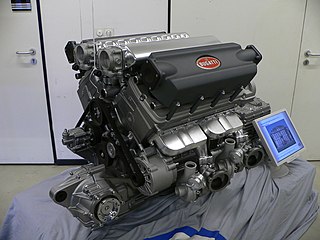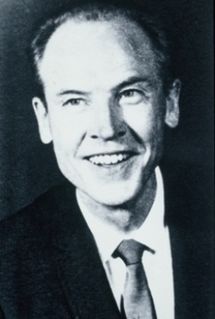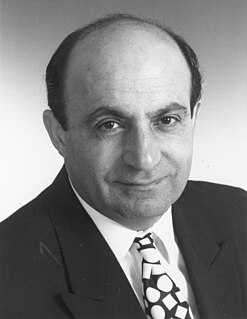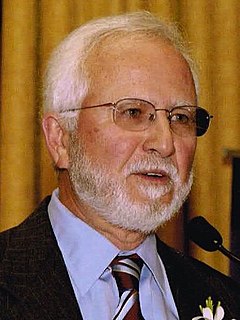
Mechanical engineering is an engineering branch that combines engineering physics and mathematics principles with materials science, to design, analyze, manufacture, and maintain mechanical systems. It is one of the oldest and broadest of the engineering branches.
In heat transfer analysis, thermal diffusivity is the thermal conductivity divided by density and specific heat capacity at constant pressure. It measures the rate of transfer of heat of a material from the hot end to the cold end. It has the SI derived unit of m2/s. Thermal diffusivity is usually denoted by lowercase alpha, but a, h, κ (kappa), K, and D are also used.

Within industry, piping is a system of pipes used to convey fluids from one location to another. The engineering discipline of piping design studies the efficient transport of fluid.
In continuum mechanics, elastic shakedown behavior is one in which plastic deformation takes place during running in, while due to residual stresses or strain hardening the steady state is perfectly elastic.

Adrian Bejan is an American professor who has made contributions to modern thermodynamics and developed his constructal law. He is J. A. Jones Distinguished Professor of Mechanical Engineering at Duke University and author of the books Design in Nature, The Physics of Life, Freedom and Evolution and Time And Beauty: Why Time Flies And Beauty Never Dies

Akbar Adibi (1939–2000) was an Iranian electronic engineer, VLSI researcher, and university engineering professor.

Thomas Joseph Robert Hughes is a Professor of Aerospace Engineering and Engineering Mechanics and currently holds the Computational and Applied Mathematics Chair (III) at the Oden Institute at The University of Texas at Austin. Hughes has been listed as an ISI Highly Cited Author in Engineering by the ISI Web of Knowledge, Thomson Scientific Company.
Thermowells are cylindrical fittings used to protect temperature sensors installed in industrial processes. A thermowell consists of a tube closed at one end and mounted in the process stream. A temperature sensor such as a thermometer, thermocouple, or resistance temperature detector is inserted in the open end of the tube, which is usually in the open air outside the process piping or vessel and any thermal insulation. Thermodynamically, the process fluid transfers heat to the thermowell wall, which in turn transfers heat to the sensor. Since more mass is present with a sensor-well assembly than with a probe directly immersed into the process, the sensor's response to process temperature changes is slowed by the addition of the well. If the sensor fails, it can be easily replaced without draining the vessel or piping. Since the mass of the thermowell must be heated to the process temperature, and since the walls of the thermowell conduct heat out of the process, sensor accuracy and responsiveness is reduced by the addition of a thermowell.
Yuwen Zhang is an American professor of mechanical engineering who is well known for his contributions to phase change heat transfer. He is presently a Curators' Distinguished Professor and Huber and Helen Croft Chair in Engineering in the Department of Mechanical and Aerospace Engineering at the University of Missouri in Columbia, Missouri.
Waviness is the measurement of the more widely spaced component of surface texture. It is a broader view of roughness because it is more strictly defined as "the irregularities whose spacing is greater than the roughness sampling length". It can occur from machine or work deflections, chatter, residual stress, vibrations, or heat treatment. Waviness should also be distinguished from flatness, both by its shorter spacing and its characteristic of being typically periodic in nature.
Amir Faghri is an American professor and leader in the engineering profession as an educator, scientist, and administrator. He is currently Distinguished Professor Emeritus of Engineering and Distinguished Dean Emeritus at the University of Connecticut. He is also currently Distinguished Adjunct Professor at the University of California, Los Angeles. Faghri served as Head of the Mechanical Engineering Department from 1994 to 1998, and Dean of the School of Engineering at the University of Connecticut from 1998 to 2006. Faghri is well known for his contributions to the field of heat transfer. He is the world's leading expert in the area of heat pipes and a contributor to thermal-fluids engineering in multiphase heat transfer.
Mehrdad Abedi is an electrical engineer and electric machinery researcher and professor of power engineering at Amirkabir University of Technology.

The Cheng cycle is a thermodynamic cycle which uses a combination of two working fluids, one gas and one steam. It can therefore be considered a combination of the Brayton cycle and the Rankine cycle. It was named for Dr. Dah Yu Cheng.

Nils Otto Myklestad was an American mechanical engineer and engineering professor. An authority on mechanical vibration, he was employed by a number of important US engineering firms and served on the faculty of several major engineering universities. Myklestad made significant contributions to both engineering practice and engineering education, publishing a number of widely influential technical journal papers and textbooks. He also was granted five US patents during his career.
Riyaz Kharrat is an eminent Iranian scientist in the field of chemical engineering and petroleum engineering. He is a full professor at Montanuniversität Leoben.
Professor Yogesh Jaluria is Board of Governors Professor and Distinguished Professor at Rutgers, the State University of New Jersey, in the Department of Mechanical and Aerospace Engineering. He is a specialist in thermal sciences and engineering.

Isaac Elishakoff is a Distinguished Research Professor in the Ocean and Mechanical Engineering Department in the Florida Atlantic University, Boca Raton, Florida. He is an authoritative figure in the broad area of mechanics. He has made several contributions in the areas of random vibrations, solid mechanics of composite material, semi-inverse problems of vibrations and stability, functionally graded material structures, and nanotechnology.
Martin Ostoja-Starzewski is a Polish-Canadian-American scientist and engineer, a professor of mechanical science and engineering at the University of Illinois Urbana-Champaign. His research includes work on deterministic and stochastic mechanics: random and fractal media, representative elementary volume in linear and nonlinear material systems, universal elastic anisotropy index, random fields, and bridging continuum mechanics to fluctuation theorem.

Richard B. Hetnarski is a Polish American and a professor emeritus in the department of mechanical engineering at Rochester Institute of Technology. He has been an ASME Fellow since 1983 and a New York State Licensed Professional Engineer since 1976. He is best known for his contributions to the fields of Thermal Stresses and Themoelasticity.

Ali Galip Ulsoy is an academic at the University of Michigan (UM), Ann Arbor, where he is the C.D. Mote, Jr. Distinguished University Professor Emeritus of Mechanical Engineering and the William Clay Ford Professor Emeritus of Manufacturing.









